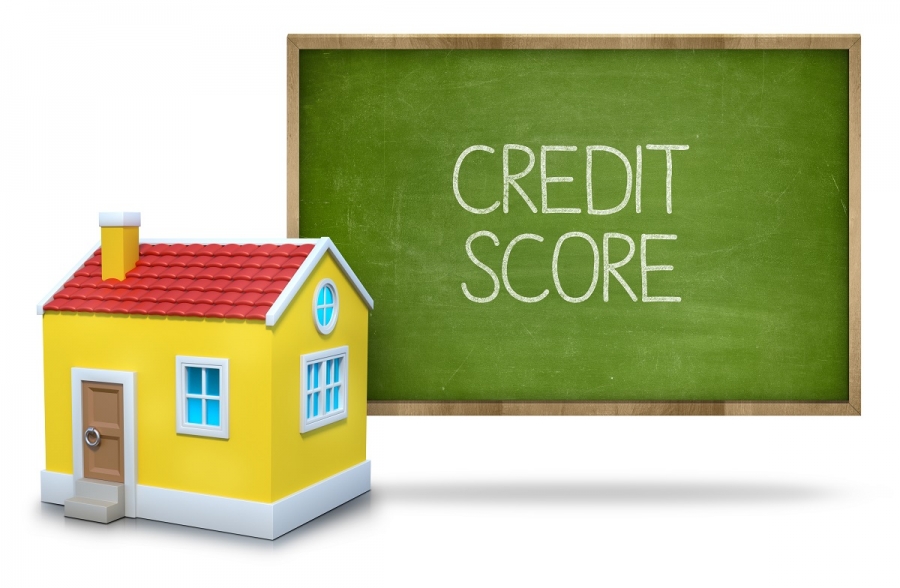How You Can Buy A Home With Bad Credit
You've started to work with a real estate agent to search for the perfect home you've picked out, with all new furniture, and you've even started figuring out your ideal paint colors. What you might find, though, is that getting a loan is harder than you've anticipated due to your poor credit. While having good credit does make it easier to buy a home, it's not entirely necessary. In fact, it's very possible for you to buy a home with bad credit if you are willing to put in a bit of extra work.
Know What Your Credit Score Means
Credit scores can seem a bit mysterious if you don't know what they mean. In the world of real estate, anything below a 700 is going to be considered a bad credit score for getting a mortgage. While you might find it easy to get a credit card or even a car loan with a sub-700 score, it's going to be very difficult to find a traditional lender with whom you can work to get a home.
The real dividing line for most is going to be at 650 points. At around 650 points, most lenders will be willing to work with you if you meet certain conditions. You might have to undergo credit counseling or start looking into making a larger down payment, but most lenders will look favorably on you if you get to this point. If you're below 650, you can technically get a loan - but there will be many more obstacles in your way.
The best way to figure out where you stand is to get an official report, preferably from a lender. Don't rely on a free reporting site - you need to know exactly what your potential lenders will see. The more accurate the information with which you work, the better the choices you will be able to make from this point forward.
Get to Work

Before you start working on looking at home loans, try to figure out what's wrong and how you can improve your credit score. While you may not be able to raise your score by much, some lenders will look at your application with a bit more leniency if they see that your score is on the rise.
Start by checking your report for accuracy. If there's anything inaccurate, go ahead and dispute it - your creditors only have a month to respond, and if they don't you might see your score shoot up. If you have any missing or late payments, go ahead and bring them up to date. Some lenders will only work with you if you have twelve consecutive months without late payments, so the clock can start ticking now.
Finally, start paying down your debt as best you can. Even FHA loans, which tend to work with those who have low credit, do want you to have a good debt to asset ratio. Important things to consider is to not completely spend your potential down payment on paying off debt, but try to pay down your credit cards and other forms of revolving debt so that your accounts look better on paper.
Find a Low-Credit Lender
Once you start to get your credit under control, you'll want to start looking at lenders who offer programs for those with low credit. Low credit home loans are actually more popular than you might imagine and most major lenders have some kind of program. The best way to get started, though, is to go ahead and start filing paperwork so that potential lenders can direct you as to where to go next.
Your major goal here will probably be to work with FHA lenders. This federal program technically works with those who have credit scores as low as 500, but you will have to meet some fairly significant milestones in order to get a loan at this level. If you have a credit score of under 580, for example, you'll need to have a ten-percent down payment ready to go.
There are also private non-FHA lenders who might work with you if you don't have a good credit score. They have a variety of rules that must be followed, often including taking credit management courses. In addition to the rules you'll need to follow, you will almost always end up paying more if you work with one of these lenders. Not only will you need a much higher down payment (usually somewhere around twenty percent) but you will also end up with a higher interest rate.
Pay attention to the possibility of predatory lenders. The vast majority of companies that will work with you are fair and will have your best interests in mind, but some will not. If you feel like a loan is too good to be true, start looking elsewhere. While there are some amazing programs, no one is going to give you anything without some kind of work.
Consider a Co-Signer
The final option for those who really want a home but who have bad credit is to work with a co-signer to get a mortgage. There are actually quite a few benefits to having a co-signer, especially if that co-signer has excellent credit. This might allow you to get a much lower interest rate, make a smaller down payment, and might give you access to a significantly larger overall loan. It is not, however, the first choice of most when buying a home.
Why might you not want to work with a co-signer? In short, it's because having a co-signer puts that person on the line for your mortgage if things go wrong. It's very hard to find someone who is willing to be responsible for an extra loan payment every month even if you are great with money saving. Any payments that you miss or that come in too late will also impact the credit score of the individual who co-signs for you, so that person might be in for some issues if they need to take out a loan. Only work with a co-signer if you are both aware of the risks.
It is entirely possible to get a home even if you don't have a great credit score. You'll need to be educated and to do a fair bit of work to get this done, but there are programs out there to help people just like you. It doesn't matter if your goal is to find a home for sale or to move into something that's a bit better for a growing family - talk to your real estate agent to find out if there is a program that is right for your credit score.







